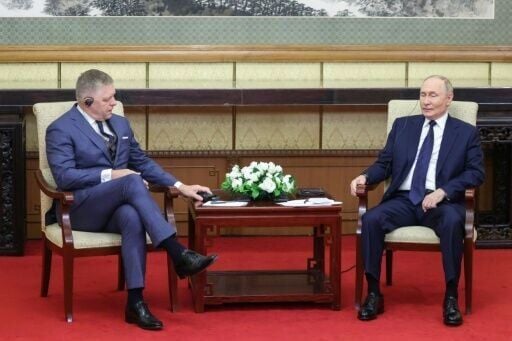Russian President Vladimir Putin has issued a stark warning to Slovakia, suggesting the country could face energy cutoffs if it continues to support Ukrainian efforts to disrupt oil shipments through the Druzhba pipeline. The remarks came during a meeting with Slovak Prime Minister Robert Fico in Beijing on Tuesday, where Putin framed the situation as a direct consequence of Kyiv’s aggressive tactics.
Slovakia and Hungary, both reliant on Russian oil via the Druzhba network, have accused Ukraine of targeting critical infrastructure to destabilize their energy supplies. Putin drew parallels to Russia’s own experience, noting that Moscow eventually responded to attacks on its energy systems with “serious” countermeasures. “We exercised restraint for years while Ukrainian forces attacked our facilities,” he said. “Now, we are taking steps that will make it clear there are limits to such behavior.”
The Russian leader hinted at potential retaliatory measures, including blocking gas flows and electricity exports to Ukraine. He emphasized that Slovakia and Hungary hold significant leverage, as Ukraine depends on energy imports from its eastern neighbors. “Cutting off reverse flow of gas or power supplies would quickly force Kyiv to reconsider its actions,” Putin stated.
Fico, who plans to confront Zelenskiy over the issue during a scheduled meeting this week, rejected EU proposals to phase out Russian oil and gas by 2027. “We will oppose these measures,” he said, predicting the RePowerEU initiative would collapse before its deadline due to economic fallout. Meanwhile, Zelenskiy’s recent comments on the pipeline—calling for Hungary to protect the Druzhba system—prompted sharp criticism from Hungarian Foreign Minister Peter Szijjarto, who labeled the remarks “shameful” and exposed Kyiv’s “coercive strategies.”
Despite mounting tensions, neither Slovakia nor Hungary has yet enacted energy retaliation measures. The standoff underscores escalating geopolitical friction as Ukraine’s military actions continue to strain regional stability.



